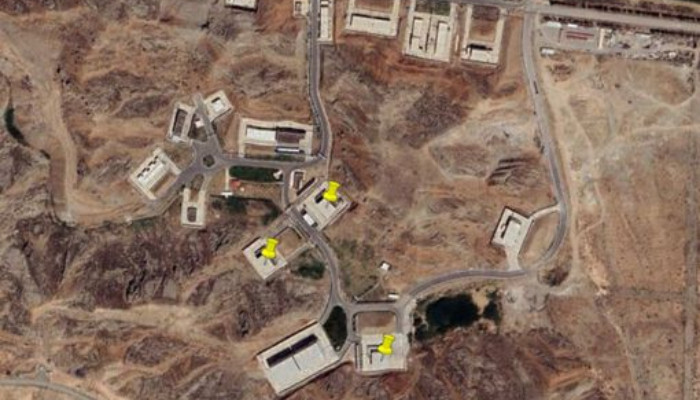Why Did Israel Attack Iran?
 2074 Saturday, 26 October, 2024, 22:48 Israel carried out a series of airstrikes against Iran on Saturday, the Israeli military said. The strikes seen and heard by residents in the capital, Tehran, came weeks after Iran fired waves of ballistic missiles at Israel, forcing millions of Israelis to take cover in bomb shelters. Iran said its attack early this month was in retaliation for Israel’s killing of an Iranian commander and several leaders of Iranian-backed groups in the region. The recent exchanges of air attacks by Israel and Iran have ruptured their longstanding practice of avoiding direct military clashes. Here’s a look at everything we know about the Israeli military action against Iran and the events that brought the countries to this point. What happened? Residents of Tehran reported hearing explosions in and around the city. Just after 6 a.m., the military said the strikes had concluded. Israeli officials said the attack was over by about 5 a.m., after 20 targets had been struck. During an exchange of airstrikes in April, Israel waited only about five days to respond to an Iranian attack similar to Tehran’s Oct. 1 missile barrage. Various factors seem to have dictated a longer lead-up to a response this time, about 25 days, including talks between Israel and the Biden administration, the arrival of a U.S. air defense system and the Jewish holidays. The coming U.S. election could have also affected Israel’s timing. For decades, Iran and Israel engaged in what amounted to a shadow war. Iran has used a network of allied groups, including Hamas and Hezbollah, to attack Israeli interests, and Israel has assassinated senior Iranian officials and nuclear scientists and staged cyberattacks against Iran. The conflict between them burst into the open this year, in the aftermath of the Oct. 7 attacks last year by Hamas on Israel. In April, Iran launched a barrage of missiles and drones at Israel — its first direct attack on the country — in retaliation for an Israeli strike on an Iranian Embassy compound in Syria’s capital, Damascus, that killed three top Iranian commanders. Israel largely thwarted the Iranian missile barrage using its air defenses, assisted by the United States and other allies, and then responded with an attack of its own. Then, in late July, Israeli jets killed a top commander of Hezbollah in Lebanon’s capital, Beirut, in retaliation for a rocket attack that killed at least 12 people. One day later, Hamas’s political leader, Ismail Haniyeh, was killed in an explosion in Tehran.
It launched a missile barrage at Israel on Oct. 1, which the country’s Islamic Revolutionary Guards Corps said was in retaliation for the assassinations of Mr. Haniyeh; Hezbollah’s leader, Hassan Nasrallah, late last month; and an Iranian commander. What were Israel’s targets? The Israeli government had told the Biden administration that it would avoid striking Iran’s nuclear enrichment and oil production sites, two officials said this month. The officials, who spoke on the condition of anonymity to discuss sensitive diplomacy, said that Israel had agreed to focus its attack on military targets in Iran. U.S. officials have been concerned about being dragged into a bigger Middle East confrontation with the presidential election less than two weeks away.
By avoiding nuclear or oil infrastructure sites, Israel was probably seeking to limit the likelihood of an all-out war between the two adversaries, which would be devastating for the region. What are Israel’s military capabilities? In assaults against the Houthis in Yemen at the end of September, Israeli forces flew more than a thousand miles to attack power plants and shipping infrastructure, using reconnaissance aircraft and dozens of fighter jets that had to be refueled in midflight. Tehran, about 1,000 miles from Israel, is in a similar range.nytimes.co |

CNN reported a record 300-year drop in the birth rate in Ukraine
469Yesterday, 22:55
Ararat Mirzoyan will pay a working visit to Switzerland
375Yesterday, 21:43
Climber convicted of manslaughter after leaving girlfriend on Austria’s highest peak to seek help
434Yesterday, 20:52
Armed man shot and killed after entering Mar-a-Lago secure perimeter, Secret Service says
415Yesterday, 18:24
Third Tejas LCA crash: Aircraft damaged, pilot safe after landing incident
389Yesterday, 18:12
Epstein estate agrees to $35 million settlement in victim claims
62721.02.2026, 16:30
US Amasses Forces as Trump Says Iran Has Just Days for Deal
97520.02.2026, 01:01
Trump Gets Pledges for Gaza Reconstruction and Troop Commitments at Inaugural Board of Peace Talks
97520.02.2026, 00:18
